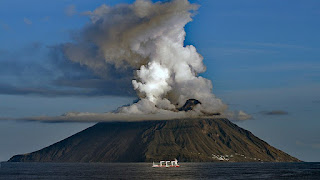Gabriele Ferzetti - actor
Starred in classic Italian films as well as Bond movie
The actor Gabriele Ferzetti, best known to international audiences for his role in the 1969 Bond movie On Her Majesty’s Secret Service but in Italy for the Michelangelo Antonioni classic L’Avventura (1960), was born on this day in 1925 in Rome. Rarely idle, he made more than 160 films and appeared in countless TV dramas and was still working at 85 years old.
His intense performance as Antonioni’s wealthy yet unfulfilled playboy opposite Monica Vitti in L’Avventura was the role that identified him most as an actor of considerable talent, yet he was also memorable as the unscrupulous Morton, the railroad magnate who hobbled around on crutches in Sergio Leone’s Once Upon a Time in the West (1968), and as Marc Ange-Draco, the sophisticated Mafia boss who joins forces with James Bond in On Her Majesty’s Secret Service, which was George Lazenby’s only outing as 007. Read more…
__________________________________________________________________
Giovanni Trapattoni - football coach
His seven Serie A titles is unequalled achievement
Giovanni Trapattoni, the former Juventus and Internazionale coach who is one of only four coaches to have won the principal league titles of four different European countries, was born on this day in 1939 in Cusano Milanino, a suburb on the northern perimeter of Milan. The most successful club coach in the history of Serie A, he won seven titles, six with Juventus and one with Inter. Trapattoni has also won the German Bundesliga with Bayern Munich, the Portuguese Primeira Liga with Benfica and the Austrian Bundesliga with Red Bull Salzburg. Trapattoni is one of only two coaches to have won all three major European club competitions - the European Cup, the UEFA Cup and the now defunct European Cup-Winners' Cup - and the only one to do it with the same club. Read more…
___________________________________________________________________
Innocenzo Manzetti - inventor
The inventor Innocenzo Manzetti, credited by some scientific historians as having been the creator of a forerunner of the telephone many years ahead of his compatriot Antonio Meucci and the Scottish-American Alexander Graham Bell, was born on this day in 1826 in Aosta, in northwest Italy. Manzetti's extraordinary catalogue of inventions included a steam-powered car, a hydraulic water pump, a pendulum watch that would keep going for a whole year and a robot that could play the flute. But he was a man whose creative talents were not allied to business sense. Like Meucci, a Florentine emigrant to New York who demonstrated a telephone-like device in 1860 - 16 years before Bell was granted the patent - Manzetti did not patent his device and therefore missed out on the fortune that came the way of Bell. Read more…
__________________________________________________________________
Kingdom of Italy proclaimed
First King of Italy calls himself Victor Emmanuel II
The newly-unified Kingdom of Italy was officially proclaimed on this day in 1861 in Turin. The first Italian parliament to meet in the city confirmed Victor Emmanuel as the first King of the new country. It was the monarch's own choice to call himself Victor Emmanuel II, rather than Victor Emmanuel I. This immediately provoked criticism from some factions, who took it as implying that Italy had always been ruled by the House of Savoy. Victor Emmanuel I, with whom Victor Emmanuel II had ancestral links, had been King of Sardinia - ruled by the Dukes of Savoy - from 1802 until his death in 1824. Victor Emmanuel II had become King of Sardinia in 1849 after his father, Charles Albert, abdicated. The Kingdom of Sardinia is considered to be the legal predecessor to the Kingdom of Italy. Indeed, the new king appointed Count Camillo Benso of Cavour, who had been prime minister of Sardinia-Piedmont, as the first prime minister of the united Italy. Read more...
















